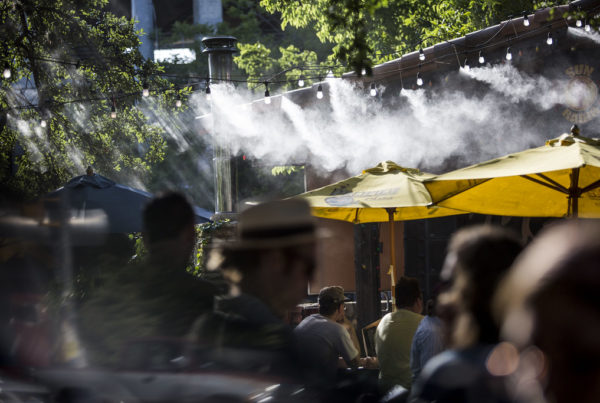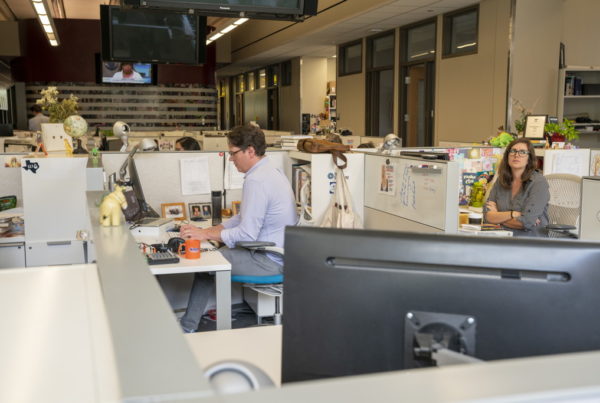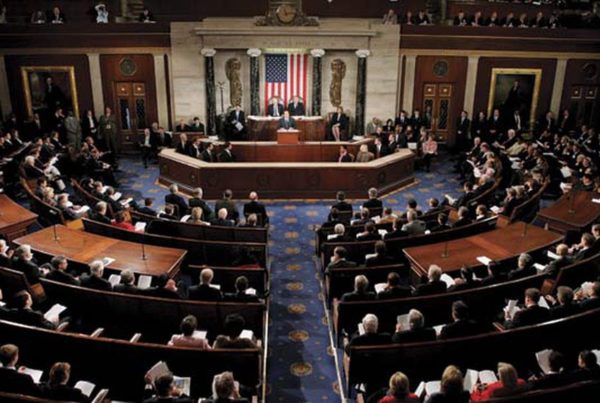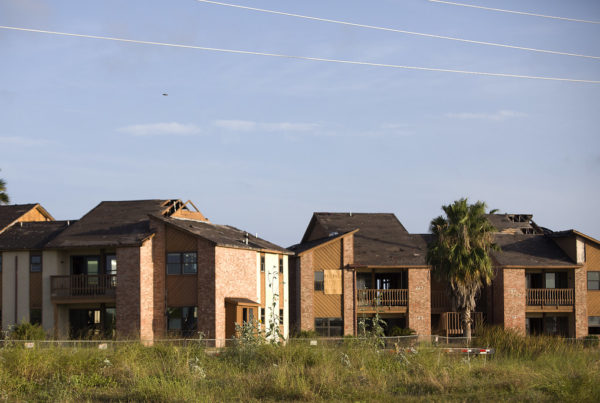Last month, Texas recorded the highest temperatures for any September in the state’s history.
The Austin American-Statesman looked into the implications of rising temperatures for workers and low-income residents. Investigative reporters Andrea Ball and Jeremy Schwartz found there have been alarming increases in the number of heat-related deaths reported in the last two decides. For example, 113 workers in the industrial, archeological and construction fields have died due to heat since 1992 that’s 27 more deaths than were recorded under similar circumstances than in California.
“When you work out in the heat, there needs to be real provisions to keep people safe,” Ball says. “You think ‘oh I just have a headache, oh I’m just nauseous, oh I’m just dizzy’ and you don’t realize your kidneys are failing and you’re going to die.”
During the 2015 and 2017 Legislative sessions, Sen. Jose Rodriguez, who represents District 29, attempted to pass a law requiring amenities for construction workers that would have protected them from extreme heat. But the measure failed because the building and construction industries stepped in to block it.
Texans who don’t work in the heat face risks, too. Over the past 10 years, 120 people have died from heat-related illnesses – 110 of those victims were found in their homes.
“Many of them, investigators later determined, were folks that were having trouble paying their bill, that could not afford their electricity bill,” Schwartz says. “They were rationing their use of air conditioning, of other electricity and ending up dying, many times alone inside of their homes.”
According to the state’s Public Utility Commission, nearly 1 million homes were disconnected from electricity service during the summer months, over the past decade.
“It gives you an idea of the amount of need that’s out there and the number of Texans that are exposed to what we all know now are increasingly hot Texas summers,” Schwartz says.
Ball says the people with access to air conditioning are accustomed to remaining unaffected by hot temperatures. Low income residents and workers whose jobs are outside, or in hot buildings, are being left to contend with the heat.
“In Texas, we take for granted that it is hot and we just blow it off and we just assume get in the air conditioning. Get over it. And that’s just what we do,” Ball says. “What we don’t do is protect people who need protection such as people who can’t afford their bills, such as people who are baking as they pour asphalt to the streets.”
Written by Libby Cohen.












